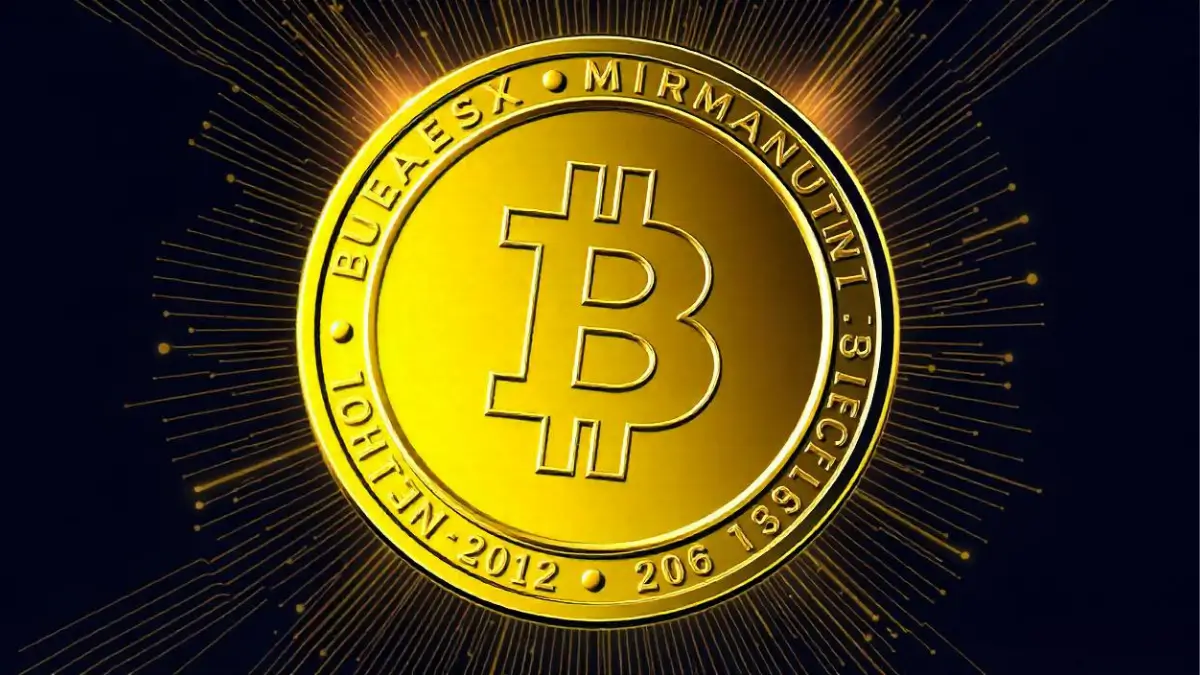Bitcoin Gains Spotlight as U.S. Debt Hits Breaking Point
05.06.2025 14:00 1 min. read Alexander Stefanov
With U.S. debt now over $36 trillion and the August 2025 ceiling deadline approaching, fears of default are mounting.
Treasury officials remain hopeful, but rising costs and political paralysis are fueling economic uncertainty. Coinbase CEO Brian Armstrong has warned that continued fiscal mismanagement could push Bitcoin into the role of global reserve currency.
Despite the mounting debt and weakening dollar, Bitcoin remains steady around $104,500, showing caution rather than a breakout.
Armstrong voiced support for Bitcoin but emphasized that global stability depends on U.S. financial discipline. Meanwhile, analysts like Wendy O argue Bitcoin’s volatility limits its reserve potential, suggesting stablecoins are more viable alternatives.
Adding to tensions, a Trump-backed spending bill proposing tax breaks and increased military funding is drawing backlash, with critics saying it could add $3 trillion more to the deficit. Elon Musk called the bill “a disgusting abomination,” warning of a $2.5 trillion annual shortfall.
In response, lawmakers like Senator Cynthia Lummis are pushing for a Bitcoin reserve strategy. Her proposal calls for the Treasury to acquire 1 million BTC as a hedge, storing it in decentralized vaults—framing it as a modern take on gold reserves. As trust in traditional finance erodes, Bitcoin is slowly moving into the heart of U.S. economic strategy.
-
1
U.S. Lawmakers Target El Salvador With Crypto Sanctions Plan
10.07.2025 15:00 2 min. read -
2
Strategy’s $60 Billion Bitcoin Portfolio Faces Mounting Risks, CryptoQuant Warns
10.07.2025 16:36 3 min. read -
3
Esports Giant Moves Into Bitcoin Mining
05.07.2025 13:00 2 min. read -
4
Bitcoin Dominance Nears Key Resistance — Is Altseason Coming Next?
13.07.2025 17:00 2 min. read -
5
Bitcoin Price Prediction: As BTC Hits New All-Time High Is $200K In Sight?
14.07.2025 21:56 3 min. read
Societe Generale Backs Bitcoin and Ethereum ETP Expansion
French banking giant Societe Generale has entered the crypto space more directly, forming a strategic partnership with 21Shares.
Strategy Launches $2 Billion Raise to Buy More Bitcoin
MicroStrategy is doubling down on its Bitcoin strategy with a massive $2 billion fundraising move. Originally planned at $500 million, the company expanded its offering after seeing strong investor demand.
Arkham Intelligence: U.S. Government Holds at Least 198,000 BTC
The U.S. government now holds over 198,000 BTC, valued at approximately $23.5 billion, according to data from Arkham Intelligence.
Tesla Q2 Earnings Surge on Bitcoin Rally and AI Growth
Tesla stunned investors in Q2 2025 with a $1.2 billion profit, nearly tripling its previous quarter’s net income.
-
1
U.S. Lawmakers Target El Salvador With Crypto Sanctions Plan
10.07.2025 15:00 2 min. read -
2
Strategy’s $60 Billion Bitcoin Portfolio Faces Mounting Risks, CryptoQuant Warns
10.07.2025 16:36 3 min. read -
3
Esports Giant Moves Into Bitcoin Mining
05.07.2025 13:00 2 min. read -
4
Bitcoin Dominance Nears Key Resistance — Is Altseason Coming Next?
13.07.2025 17:00 2 min. read -
5
Bitcoin Price Prediction: As BTC Hits New All-Time High Is $200K In Sight?
14.07.2025 21:56 3 min. read


